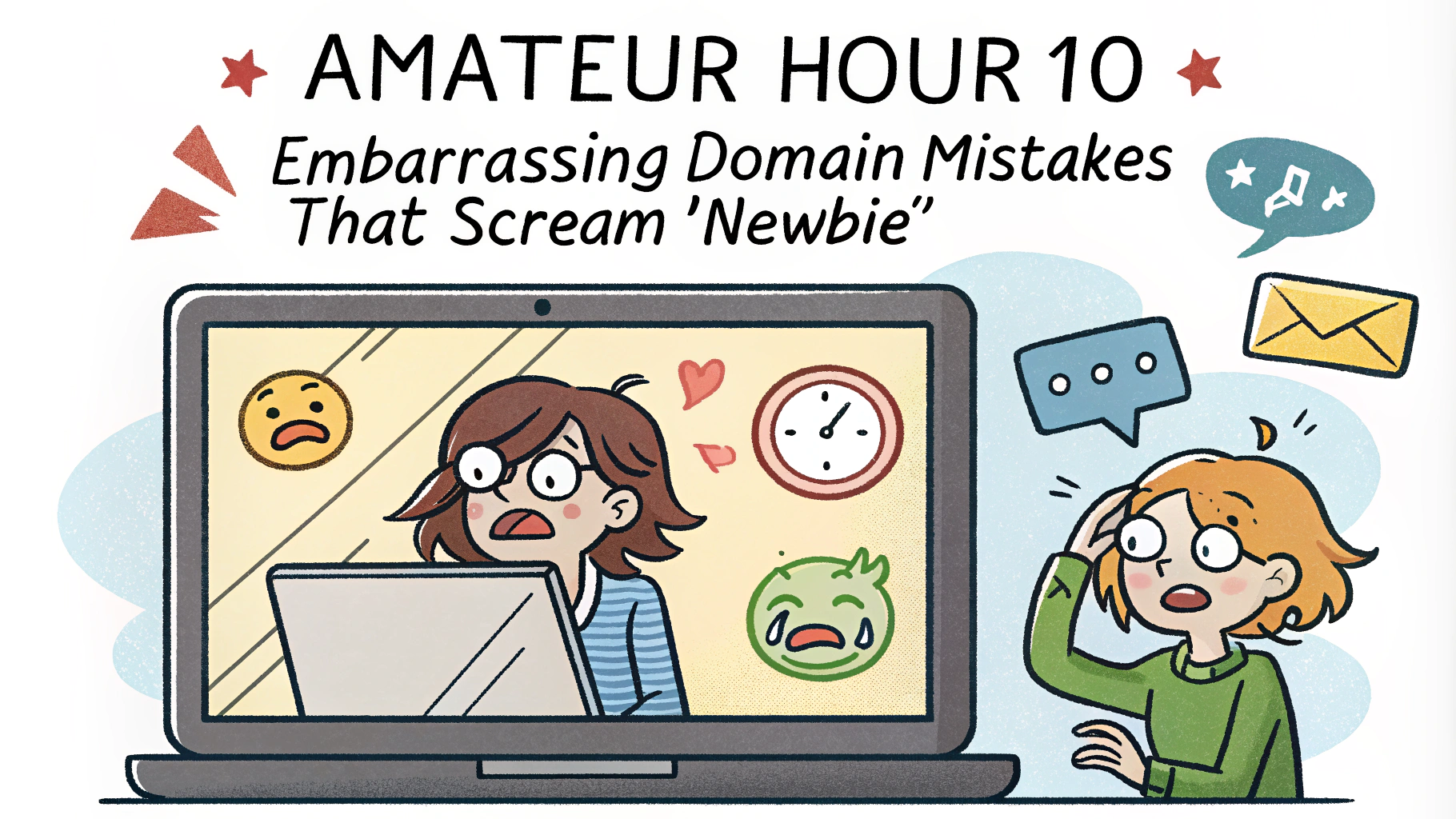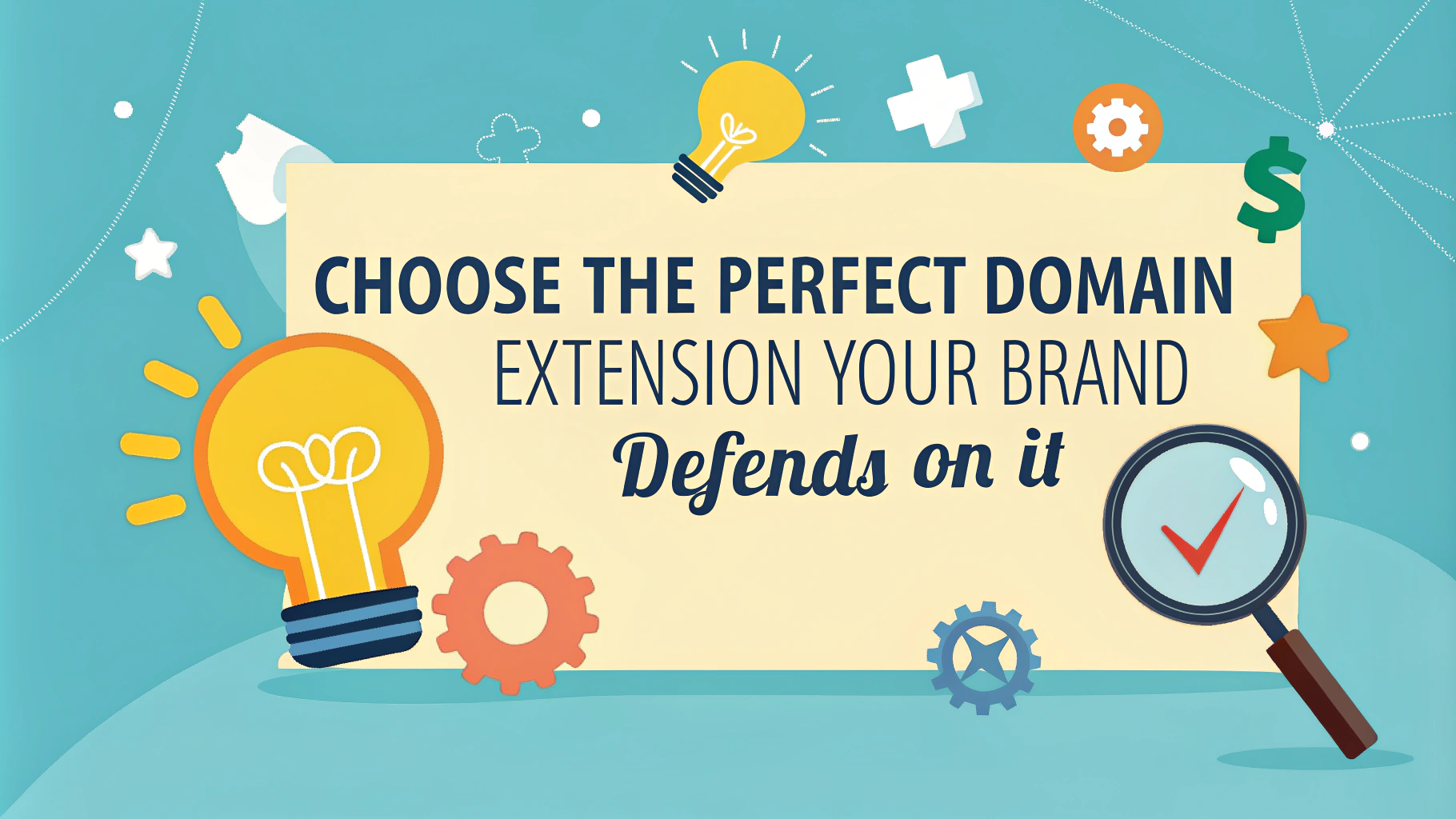Your domain name is your digital identity. It’s often the first interaction potential customers have with your brand.
Choosing the right domain name can make or break your online presence. Let’s explore the key mistakes to avoid when selecting your domain name.
1. Unique Domain Names: Stand Out from the Crowd
Differentiation is essential in the digital space. A unique domain name not only enhances brand recognition but also improves search engine visibility.
For example, if you’re starting a travel blog, avoid common names like “TravelTips.com.” Instead, consider something more unique like “WanderTracks.com” or “GlobeQuestAdventures.com.”
If you run a consulting business, a domain like “NextGenConsults.com” works better than something generic like “TopConsultants.com.”
Actionable Tip: Use creative blends like “Pinterest” (pin + interest) or mashups like “Groupon” (group + coupon) to stand out.
2. Steer Clear of Complicated Names
Simplicity is key when choosing a domain name. Long or complex names can lead to typing errors and confusion.
For example, a domain like “Fit-Life4U.com” is complicated and prone to mistakes. A cleaner option like “FitLifeZone.com” is simpler and easier to recall.
Another example: instead of using “WebDesign-Experts123.com,” go for something like “WebDesignPro.com” or “CreativeSites.com.”
Actionable Tip: Test your domain by asking someone to write it down after hearing it once. If they misspell it, it’s likely too complicated.
3. Align with Your Brand Identity
Your domain should reflect your brand identity. This ensures consistency across your website and other platforms.
For instance, a yoga studio could use “SereneFlowYoga.com,” while an accounting firm might choose “BalanceBooks.com” to match their brand.
If you run a fitness coaching business, a name like “StrongFitTraining.com” aligns better with your brand than something generic like “FitnessCoach123.com.”
Actionable Tip: Your domain should match your brand’s tone—whether you’re aiming for a professional, casual, or playful feel.
4. Domain Registration: Choose Wisely
Not all registrars are the same. When registering a domain, prioritize those offering privacy protection and transparent pricing.
For example, some registrars like Namecheap offer WHOIS privacy for free, while others might charge extra. Look for registrars that don’t inflate renewal fees.
If customer support is important to you, registrars like Google Domains provide easy domain management and fast support.
Actionable Tip: Compare the long-term costs of registrars, not just the initial pricing.
5. Leverage SEO Potential
Your domain name can impact your search engine optimization (SEO). Including relevant keywords can help with visibility but avoid stuffing.
For instance, “OrganicGardenSupplies.com” works better than “BestOrganicGardeningSuppliesAndTools.com,” which is too long and spammy.
If you own a pet grooming business, a name like “PawSpaGrooming.com” incorporates a relevant keyword without overdoing it.
Actionable Tip: Use niche-specific keywords naturally in your domain name to enhance visibility.
6. Prioritize Domain Safety
A secure domain is critical for building trust with your visitors. Domains linked to malware or spam can damage your brand.
For example, buying a cheap, previously owned domain could be risky if it was used for spamming. Instead, purchase from reputable registrars and get an SSL certificate.
If you run an e-commerce store, using https with “SecureShop.com” makes your site safer for users and search engines alike.
Actionable Tip: Always buy from trusted registrars and monitor your domain’s safety using security tools.
7. Keep It Short and Simple
Brevity is important in domain names. Shorter names are easier to remember and type, enhancing user experience.
For example, instead of “TastyHomemadeCakesAndBakes.com,” opt for something simpler like “TastyCakes.com” or “BakeDelights.com.”
Another example: “QuickAutoFix.com” is much easier to recall than “FastAffordableCarRepairServices.com.”
Actionable Tip: Stick to 6-14 characters for your domain whenever possible.
8. Understand Domain Name Regulations
Different top-level domains (TLDs) have their own rules and reputations. Be mindful of this when choosing your domain.
For example, .com is universal, while .io is often favored by tech startups. A country-specific TLD like .uk might make sense for local businesses.
If you’re a nonprofit, .org is a great choice for building trust. Ensure the TLD you choose fits your brand’s goals.
Actionable Tip: Choose a TLD that aligns with your industry and geographic focus.
9. Consider Brand Perception
Your domain name influences how people perceive your brand. It should evoke trust, excitement, or curiosity based on your business type.
For instance, a luxury fashion store might use “OpulentStyles.com,” which sounds upscale, while a family-friendly domain could be “FunFamilyTrips.com.”
If you’re launching a tech product, “InnovateTech.com” gives a modern feel, while “BudgetTechTools.com” might sound less premium.
Actionable Tip: Think about how your domain reflects your brand’s values and audience.
10. Learn from Common Mistakes
Avoid trendy spellings and excessive punctuation. These can confuse users and date your brand quickly.
For instance, instead of “XtremeCarKare.com” (with unusual spelling), stick with something simple like “EliteCarCare.com.” Avoid domains with excessive hyphens like “Best-Toys-For-Kidz.com.”
Another mistake is adding too many numbers. Instead of “4UConsulting123.com,” go for a more timeless option like “PrimeConsulting.com.”
Actionable Tip: Choose a timeless domain that is easy to type and pronounce, avoiding unnecessary symbols and numbers.
Conclusion: Invest in Your Digital Future
Choosing the right domain name is a crucial investment. It enhances your brand’s credibility, visibility, and user engagement.
Take the time to consider all aspects before deciding. Your domain is the cornerstone of your digital identity.











